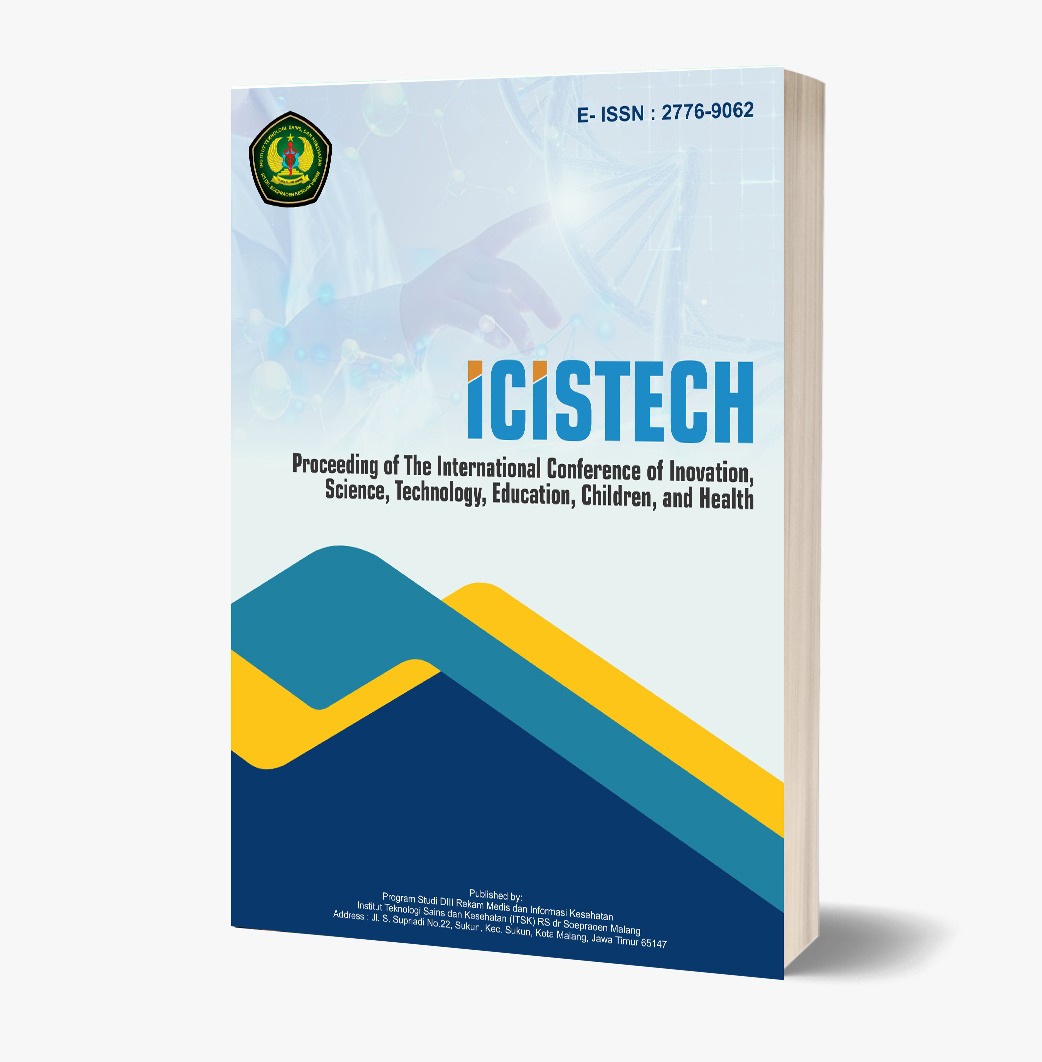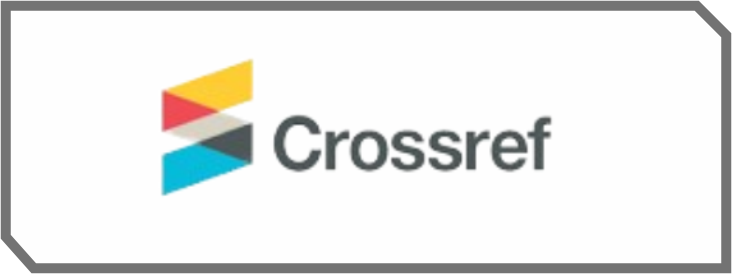Classroom Management Through Problem Solving: Teachers' Strategies in Realizing Quality Learning
DOI:
https://doi.org/10.62951/icistech.v4i1.85Keywords:
Classroom Management, Problem Solving, Teacher Strategy, Quality LearningAbstract
This study aims to describe the classroom management through problem-solving strategies in realizing quality learning. This research was conducted by quantitative approach. The main data of this study was 108 high school teachers. The technique used for data collection is questionnaire. The analysis technique used descriptive statistics, factor analysis, normality test, and inferential statistical test through t and anova tests. The results of the analysis show that classroom management efforts through problem solving are categorized as good by all aspects. Every aspect is valid with Alfa Cronbach's 0.766, thus, normal. The analysis of categorical factors is relevant in analyzing the classroom management through problem solving in realizing quality learning, which is above 0.7. In correlational analysis and one t-test of sample, all data are correlated and have significant role seen by the value of sig. 0.000 < 0.05. The Anova test through the linear path shows all the linearity as it impacting the problem solving in classroom management with value of F 0.000 < 0.05. Each aspect has its own characteristics on its implementation in learning. It shows that classroom management through problem solving can be a strategy in realizing quality learning.
References
Fauth, B., Decristan, J., Rieser, S., Klieme, E., & Büttner, G. (2019). The effects of teacher competence on student outcomes in elementary science education: The mediating role of teaching quality. Teaching and Teacher Education, 86, 102882. https://doi.org/10.1016/j.tate.2019.102882
Hidayati, R. M., & Wagiran, W. (2020). Implementation of problem-based learning to improve problem-solving skills in vocational high school. Jurnal Pendidikan Vokasi, 10(2), 177–187. https://doi.org/10.21831/jpv.v10i2.31210
Khalid, M., Saad, S., Hamid, S. R. A., Abdullah, M. R., Ibrahim, H., & Shahrill, M. (2020). Enhancing creativity and problem solving skills through creative problem solving in teaching mathematics. Creativity Studies, 13(2), 270–291. https://doi.org/10.3846/cs.2020.11027
Sari, Y. I., Sumarmi, Utomo, D. H., & Astina, I. K. (2021). The effect of problem-based learning on problem-solving and scientific writing skills. International Journal of Instruction, 14(2), 11–26. https://doi.org/10.29333/iji.2021.1422a
Madani, R. A. (2019). Analysis of educational quality, a goal of education for all policy. Higher Education Studies, 9(1), 100–109. https://doi.org/10.5539/hes.v9n1p100
Erlangga, D. T. (2022). Student problems in online learning: Solutions to keep education going on. Jurnal English Language Teaching and Learning, 3(1), 21–26. https://doi.org/10.33365/jeltl.v3i1.1694
Zhang, Y., & Lin, C.-H. (2020). Student interaction and the role of the teacher in a state virtual high school: What predicts online learning satisfaction? Technology, Pedagogy and Education, 29(1), 57–71. https://doi.org/10.1080/1475939X.2019.1694061
Mustafa, M. N., Hermandra, H., & Zulhafizh, Z. (2020). Pengelolaan kelas: Upaya meningkatkan kualitas pembelajaran. Mirra Buana Media.
Zulhafizh, Z., Atmazaki, A., & Syahrul, R. (2013). Kontribusi sikap dan motivasi belajar siswa terhadap hasil belajar bahasa Indonesia. Bahasa, Sastra, dan Pembelajaran, 1(2), 1–14. Retrieved from http://ejournal.unp.ac.id/index.php/bsp/article/download/4991/3943
Mustafa, M. N., Hermandra, H., Zulhafizh, Z., & Hermita, N. (2018). The significance of language motivation learning: Correlation analysis. Advanced Science Letters, 24(11), 8380–8383. https://doi.org/10.1166/asl.2018.12568
Franklin, H., & Harrington, I. (2019). A review into effective classroom management and strategies for student engagement: Teacher and student roles in today’s classrooms. Journal of Education and Training Studies, 7(12), 1–12. https://doi.org/10.11114/jets.v7i12.4491
Stevenson, N. A., VanLone, J., & Barber, B. R. (2020). A commentary on the misalignment of teacher education and the need for classroom behavior management skills. Education and Treatment of Children, 43(4), 393–404. https://doi.org/10.1007/s43494-020-00031-1
Berger, J. L., & Girardet, C. (2021). Vocational teachers’ classroom management style: The role of motivation to teach and sense of responsibility. European Journal of Teacher Education, 44(2), 1–17. https://doi.org/10.1080/02619768.2020.1764930
Collier-Meek, M. A., Johnson, A. H., Sanetti, L. H., & Minami, T. (2019). Identifying critical components of classroom management implementation. School Psychology Review, 48(4), 348–361. https://doi.org/10.17105/SPR-2018-0026.V48-4
Zulhafizh, Z. (2020). Membina aktivitas belajar mahasiswa di perguruan tinggi melalui metode TIE (Translation, Interpretation, Extrapolation) pada masa pandemi covid-19. Jurnal Kependidikan: Jurnal Hasil Penelitian dan Kajian Kepustakaan di Bidang Pendidikan, Pengajaran dan Pembelajaran, 6(3), 502–511. https://doi.org/10.33394/jk.v6i3.2865
Wolff, C. E., Jarodzka, H., & Boshuizen, H. P. A. (2021). Classroom management scripts: A theoretical model contrasting expert and novice teachers’ knowledge and awareness of classroom events. Educational Psychology Review, 33(1), 131–148. https://doi.org/10.1007/s10648-020-09542-0
Zulhafizh, Z. (2021). Peran dan mutu pelaksanaan pembelajaran oleh guru di satuan pendidikan tingkat atas. Jurnal Kependidikan: Jurnal Hasil Penelitian dan Kajian Kepustakaan di Bidang Pendidikan, Pengajaran dan Pembelajaran, 7(2), 328–339. https://doi.org/10.33394/jk.v7i2.3344
Zulhafizh, Z. (2022). Manajemen informasi sebagai penguatan pemahaman belajar di era pandemi covid 19. Edukatif: Jurnal Ilmu Pendidikan, 4(3), 4557–4566. https://doi.org/10.31004/edukatif.v4i3.2811
Mustafa, M. N., Hermandra, H., Zulhafizh, Z., & Hidayat, R. (2024). Classroom management in improving the quality of learning in the education units. Journal of Higher Education Theory and Practice, 24(5), 73–86. https://doi.org/10.33423/jhetp.v24i5.7003
Hadjichambis, A. C., & Paraskeva-Hadjichambi, D. (2020). Environmental citizenship questionnaire (ECQ): The development and validation of an evaluation instrument for secondary school students. Sustainability, 12(3), 1–12. https://doi.org/10.3390/su12030821
Shrestha, N. (2021). Factor analysis as a tool for survey analysis. American Journal of Applied Mathematics and Statistics, 9(1), 4–11. https://doi.org/10.12691/ajams-9-1-2
Rahman, M. M. (2019). 21st century skill ‘problem solving’: Defining the concept. Asian Journal of Interdisciplinary Research, 2(1), 71–81.
Treffinger, D. J., Isaksen, S. G., & Stead-Dorval, B. (2023). Creative problem solving: An introduction. Routledge.
Sagita, I. K. (2021). Applying conversation method and self-confidence and its effect to learning achievement. Journal of Corner Education, Linguistics, and Literature, 1(2), 122–131. https://doi.org/10.54012/jcell.v1i2.11
Mustafa, M. N., Hermandra, H., Suarman, & Zulhafizh, Z. (2019). Manajerial pembelajaran kreatif: Menjadi guru jitu. Diandra Kreatif.
Olusegun, B. S. (2015). Constructivism learning theory: A paradigm for teaching and learning. IOSR Journal of Research & Method in Education, 5(6), 66–70. https://doi.org/10.9790/7388-05616670
Al-Jarrah, T. M., Mansor, N., Talafhah, R. H., & Al-jarrah, J. M. (2019). The application of metacognition, cognitivism, and constructivism in teaching writing skills. European Journal of Foreign Language Teaching, 3(4), 199–213. https://doi.org/10.5281/zenodo.2531617
Bronkhorst, H., Roorda, G., Suhre, C., & Goedhart, M. (2020). Logical reasoning in formal and everyday reasoning tasks. International Journal of Science and Mathematics Education, 18(8), 1673–1694. https://doi.org/10.1007/s10763-019-10039-8
Stefanou, C. R., Perencevich, K. C., DiCintio, M., & Turner, J. C. (2004). Supporting autonomy in the classroom
Downloads
Published
How to Cite
Issue
Section
License
Copyright (c) 2024 Proceeding of The International Conference of Inovation, Science, Technology, Education, Children, and Health

This work is licensed under a Creative Commons Attribution-ShareAlike 4.0 International License.













